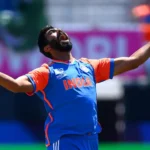The Indian Premier League (IPL) is not just a cricket tournament; it’s a spectacle that often sparks debates and controversies. In the midst of IPL 2024, a verbal exchange between legendary cricketer Sunil Gavaskar and Royal Challengers Bangalore (RCB) captain Virat Kohli has stirred the cricketing world. The debate revolves around Kohli’s strike rate, a metric that has become increasingly significant in the fast-paced world of T20 cricket.
The controversy erupted when Kohli, after an impressive innings against Gujarat Titans (GT), made remarks about those questioning his strike rate. Subsequently, Gavaskar weighed in, criticizing Kohli’s comments and shedding light on the role of commentators. This article delves into the heart of the matter, examining why Kohli’s strike rate is a talking point, analyzing Gavaskar’s perspective, and exploring the broader implications of this IPL saga.
Understanding the Significance of Strike Rate in T20 Cricket:
T20 cricket is a format defined by its frenetic pace and high-octane action. In this condensed version of the game, every run counts, and the ability to score quickly becomes paramount. Unlike traditional formats like Test cricket, where players prioritize building innings and preserving wickets, T20 demands aggressive stroke play and rapid run accumulation.
Enter Virat Kohli, a cricketer renowned for his technical prowess and consistency across formats. However, in the context of T20 cricket, Kohli’s strike rate has often been a point of discussion. While his average remains impressive, critics argue that his strike rate sometimes lags behind the demands of modern T20 cricket.
Kohli’s Comment and Gavaskar’s Response:
The controversy ignited when Kohli, in a post-match interview, addressed the chatter surrounding his strike rate. Following a stellar performance against Gujarat Titans, Kohli expressed frustration at those questioning his ability to play spin and his strike rate. This statement sparked a debate, with many interpreting it as a response to criticism from commentators and fans.
Sunil Gavaskar, a veteran of the game and a respected cricket commentator, joined the discourse by offering his perspective on Kohli’s comments. Gavaskar emphasized the importance of strike rate in T20 cricket, particularly for a player of Kohli’s caliber. He questioned the validity of Kohli’s remarks and defended the role of commentators in discussing on-field performances.
Analyzing Kohli’s Performance and Evolution in T20 Cricket:
To contextualize the debate, it’s essential to assess Kohli’s performance in T20 cricket and his evolution as a player in this format. While Kohli’s record in Test and One Day International (ODI) cricket is exemplary, his T20 statistics have sometimes fallen short of expectations.
Critics argue that Kohli’s approach, rooted in classical techniques and accumulation of runs, may not always align with the demands of T20 cricket. However, it’s worth noting that Kohli has shown signs of adaptation, refining his game to incorporate more aggressive shot-making and innovative stroke play.
Gavaskar’s Critique and the Role of Commentators:
Gavaskar’s critique of Kohli’s strike rate and commentary on the controversy underscore the nuanced dynamics at play in the world of cricket broadcasting. As a former player turned commentator, Gavaskar brings a unique perspective to the table. He emphasizes the objectivity of commentators and their responsibility to analyze on-field performances without bias or personal agendas.
Moreover, Gavaskar’s remarks highlight the larger debate surrounding player-commentator interactions and the role of external noise in influencing player behavior. While players often claim to ignore outside criticism, Gavaskar questions the authenticity of this assertion, suggesting that responses like Kohli’s indicate otherwise.
The IPL saga involving Virat Kohli and Sunil Gavaskar offers valuable insights into the evolving landscape of cricket commentary and player-media interactions. Beyond the surface-level debate about strike rates and performance metrics, the controversy raises questions about player accountability, media scrutiny, and the delicate balance between criticism and constructive feedback.
As cricket continues to evolve, players like Kohli will face increasing pressure to adapt their game to suit the demands of modern formats. Similarly, commentators like Gavaskar will continue to provide insights and analysis, enriching the viewer experience while maintaining the integrity of the sport. Ultimately, this episode serves as a reminder of the complexities inherent in professional sports and the enduring allure of cricket as a source of passion, debate, and camaraderie.











Hi there,
I have reviewed your domain in MOZ and have observed that you may benefit from an increase in authority.
Our solution guarantees you a high-quality domain authority score within a period of three months. This will increase your organic visibility and strengthen your website authority, thus making it stronger against Google updates.
Check out our deals for more details.
https://www.monkeydigital.co/domain-authority-plan/
NEW: Ahrefs Domain Rating
https://www.monkeydigital.co/ahrefs-seo/
Thanks and regards
Mike Mason